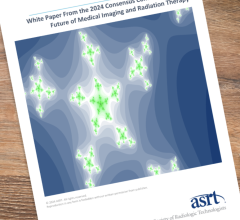
May 11, 2016 — The U.S. Department of Health and Human Services (HHS) released two funding opportunities from the Office of the National Coordinator for Health Information Technology (ONC), designed to expand use of common standards supporting the sharing of health information. The two opportunities together are worth $1.5 million.
“We have made significant progress in the flow of health information, but we still have work to do to ensure different systems speak the same language,” said Karen DeSalvo, M.D., M.P.H., M.Sc., national coordinator for health IT. “Today’s announcement will advance the use of common, interoperable standards, particularly for key pieces of data like medications and lab results.”
The High Impact Pilot (HIP) and Standards Exploration Award (SEA) cooperative agreement programs are designed to spur the development of standards and technology that will improve the sharing of health information among healthcare stakeholders, and thus improve care delivery and the patient experience.
The HIP and SEA programs each follow the same overall structure but differ in scope and award size. Applicants for both programs must first select a “priority category” to focus on and then choose a specific minimum number of “impact dimensions” that their project will address. HIP awardees need to choose a minimum of three out of seven impact dimensions, while SEA awardees will only need to choose a minimum of one impact dimension. Both funding opportunity announcements also expect awardees to use the best available standards, implementation guides, and emerging alternatives identified in the 2016 Interoperability Standards Advisory (ISA), a coordinated catalog of existing and emerging standards and specifications to meet specific needs for the exchange of health information.
Awardees under these two programs will need to be ready to produce results within one year. Through this funding, award recipients in each program will need to generate evidence regarding whether their specific standards and technology are ready for widespread use and larger investments.
- Priority Categories include: (1) Comprehensive Medication Management; (2) Laboratory Data Exchange; (3) Care Coordination; and (4) a Self-Identified category that allows the applicant to identify another area they believe the advancement of interoperable standards could be demonstrated; and
- The Impact Dimensions applicants can choose from are: (1) Practice Efficiency; (2) Clinical Quality; (3) Cost Efficiency; (4) Patient Experience; (5) Safety; (6) Privacy and Security; and (7) Interoperable Exchange.
Three to seven High Impact Pilot projects are expected to be funded ranging from $100,000 to $500,000. Three to five Standards Exploration Award projects are expected to be funded ranging from $50,000 to $100,000.
For more information: www.healthit.gov


 July 30, 2024
July 30, 2024 








